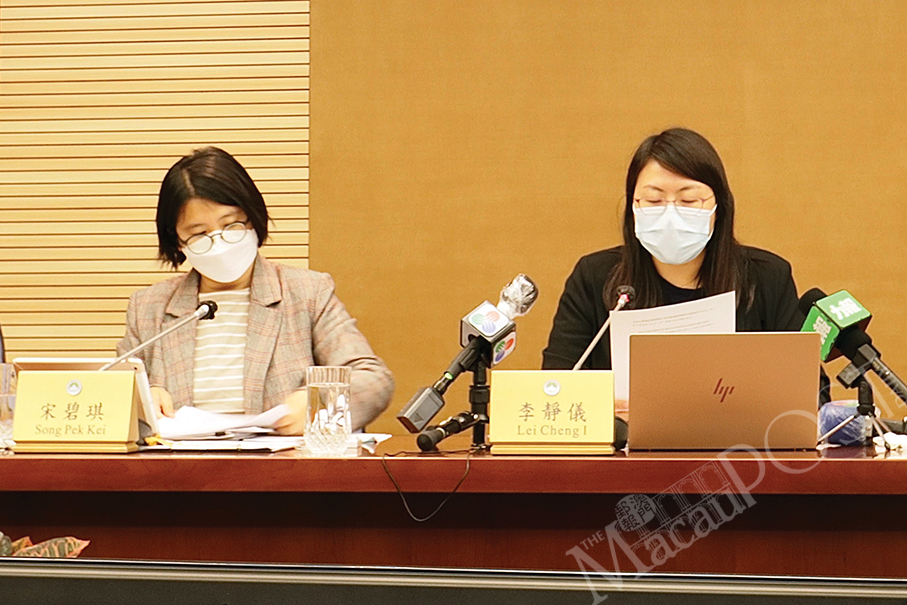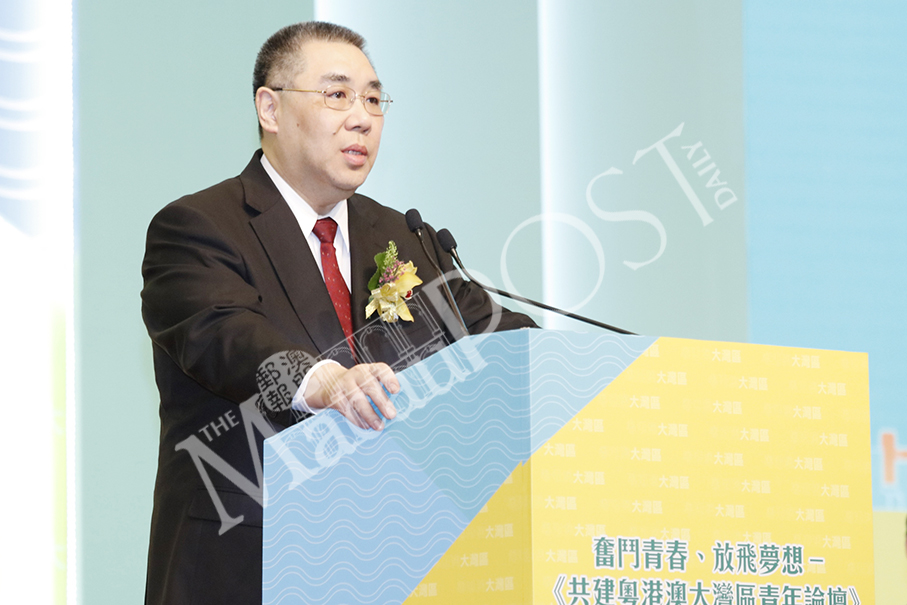Directly-elected lawmaker-cum-unionist Ella Lei Cheng I, who chairs the Legislative Assembly’s (AL) 1st Standing Committee, which is currently reviewing a government-initiated bill regulating the tapping of telephones during police investigations into criminal cases, said phone logs or other communication records that are obtained by the police without the permission of a judge will need to be destroyed within 72 hours.
Addressing a press briefing after yesterday’s closed-door meeting reviewing the phone-tapping bill’s latest version submitted by the government, Lei said that the bill’s wording will be further revised after which the committee will draft its final report on its revision process which will then be submitted to a plenary session of the legislature for the bill’s final debate and vote in its second reading.
Yesterday’s two-hour meeting was attended by Secretary for Security Wong Sio Chak and other government officials.
According to the latest version of the bill, once it has been concluded by the police that a suspect is possibly involved in certain criminal activities, they can obtain the suspect’s phone logs or other communication records through the city’s telecom operators in “urgent” circumstances. However, the police must inform a judge within 72 hours after obtaining the phone logs. Lei quoted the concerns raised by some committee members about the consequences of the judge not being informed within the required time – 72 hours.
According to Lei, the government officials told the committee yesterday that the government has accepted the lawmakers’ concern so that the bill’s revised wording specifies that if the police do not obtain permission from a judge to obtain the suspect’s communication records within 72 hours, the police must destroy the respective phone logs.
While the proposed 12 types of suspected crimes that would allow the police to resort to tapping telephones for an ongoing investigation, according to the bill, refer to offences “punishable by more than three years in prison”, Lei quoted the divergent viewpoint that the minimum prison term in this case should be raised in the bill to five years or more. She did not reveal who raised the viewpoint.
However, Lei quoted the officials as saying yesterday that the bill’s current wording on the matter is based on previous public consultations and the government would therefore keep the wording unchanged, because of which the government would not accept that viewpoint.
The bill also proposes to adjust the penalties for breach of confidentiality by dividing those who breach it into two categories, i.e., those directly involved in the communication interception process, who are liable to a maximum penalty of three years’ imprisonment or a fine for breaching the law; and suspects or those involved in an auxiliary capacity in intercepting communication records in accordance with the law, are liable to a maximum penalty of two years’ imprisonment or a fine for breaching the confidentiality rules.
Lei also quoted the officials as saying that the latest version of the bill proposes to change the penalty for failing to keep or provide intercepted communication records from a criminal penalty to an administrative offence, which would be in line with the “proportionality principle” of offenders’ punishment.

Lawmaker-cum-unionist Ella Lei Cheng I (right), who chairs the legislature’s First Standing Committee, talks to reporters after yesterday’s closed-door meeting of the committee reviewing the government’s telephone tapping bill, as the committee’s secretary, Becky Song Pek Kei, looks on. Photo: Ginnie Liang








